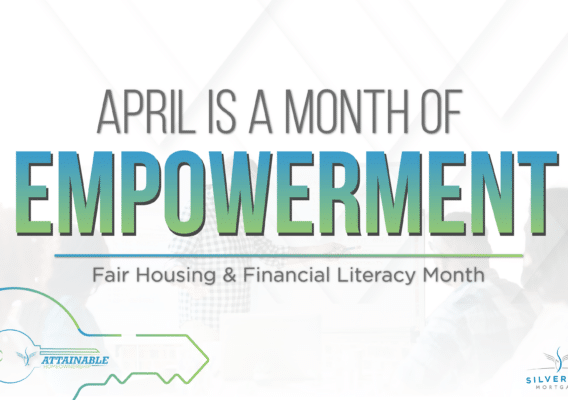At Silverton Mortgage, we kicked off 2020 by attempting to predict what the year’s housing market would have in store for us all. Then a worldwide pandemic hit and turned everything upside down. Suddenly, homebuying trends seemed to directly relate to the effects that COVID-19 had on individuals, businesses, and the country. People spending unpreceded amounts of time at home, historically low mortgage rates, and strong demand for housing meant the assumptions that fueled our predictions were no longer relevant.
Let’s Recap
By the end of 2019, homeowners spent an average of 13 years in their home, which is up from 8 years in 2010. Many assumed that this trend would continue in 2020, yet the opposite happened. By October, nearly 16 million Americans moved, with most doing so at the height of the Coronavirus lockdown. In March, the financial services industry, which includes mortgage lending, was deemed essential by many jurisdictions and continued to operate as the country began to shut down in response to COVID-19. This allowed people who were active in the housing market to continue with their home purchasing process as well as allowed the industry to continue serving those looking to finance their home purchases as smoothly as possible. Refinancing was also popular among those looking to take advantage of the lower mortgage rates. However, as the risk of government-mandated mortgage forbearance and mortgage defaults became more likely, many financial institutions tightened their lending standards. While this potentially made it harder for many people who had their hopes set on owning a home in 2020, we were able to help our customers secure a record number of loans for the year.
Looking Ahead
It’s safe to say that the housing market stood its ground against some major curveballs as home sales hit record numbers and interest rates dropped. It’s expected that the streak will continue into 2021 as things begin to normalize.
A recent report predicted that the housing market will settle into a normal pattern and that home prices will rise and fall in accordance with the seasonal trends we’ve seen in years past. It is also expected that housing inventory will stay low as buyer demand remains strong. Another prediction is that millennials will be big contributors to the housing market. While younger millennials will be turning 25 and presumably entering the housing market for the first time, older citizens of the generation are entering their 40’s and starting to see equitable gains in their home purchases. Also, Generation Z buyers, who will be 24 or younger in 2021, will start to enter the housing market. As far as where people are expected to buy, suburban migration looks like it is here to stay. With remote work still going strong, the desire for bigger homes and outdoor space, and more affordable home prices, people are seemingly more comfortable with the idea of moving away from downtown areas.
A lot of how the 2021 mortgage industry will unfold depends on what happens with COVID-19. For instance, it’s still unknown if there will be more lockdowns in 2021 as the government tries to help slow the spread. While some vaccines have been cleared to administer to the public, it is unknown how long it will take to reach the masses. Some experts believe that a vaccine is going to improve buyer sentiment but that it should not affect interest rates immediately as the Federal Reserve has projected no rate hikes through 2022. Over time, however, the vaccine may contribute to rising rates as the economy begins to bounce back.
While it’s tough to deduce how a new administration will affect the country’s housing market, President-Elect Joe Biden has pledged to invest $640 billion over the next decade to help Americans achieve affordable, safe, and energy-efficient housing within a reasonable distance to education and employment. He has also promised to allocate $100 billion toward an Affordable Housing Fund, which includes new incentives for building where affordable housing is in especially short supply. In addition, Biden plans to expand HUD programs to support first-time homebuyers and to provide a $15,000 tax credit geared towards helping Americans with down payments and closing costs. While these are merely proposals that have a long way to go before coming to fruition, they are initiatives that would have a direct impact on the nation’s housing market.
That’s A Wrap
Well, not quite. While 2020 is behind us, there’s still a lot of uncertainty on the horizon. The good news is that the mortgage industry appears to be secure with robust demand for housing and steady low rates. Combined with low down payment options and more incentives proposed by the incoming administration, the dream of homeownership may be very possible in 2021. At Silverton Mortgage, we’ve got a variety of loan programs and professionals well equipped at helping borrowers find the right path for their individual needs. If you think that the new year holds the opportunity to purchase a home of your own, contact us today and let’s start a conversation.
You Might Also Like

Navigating the Mortgage Maze: The Mortgage Process Simplified

April: The Month of Empowerment

